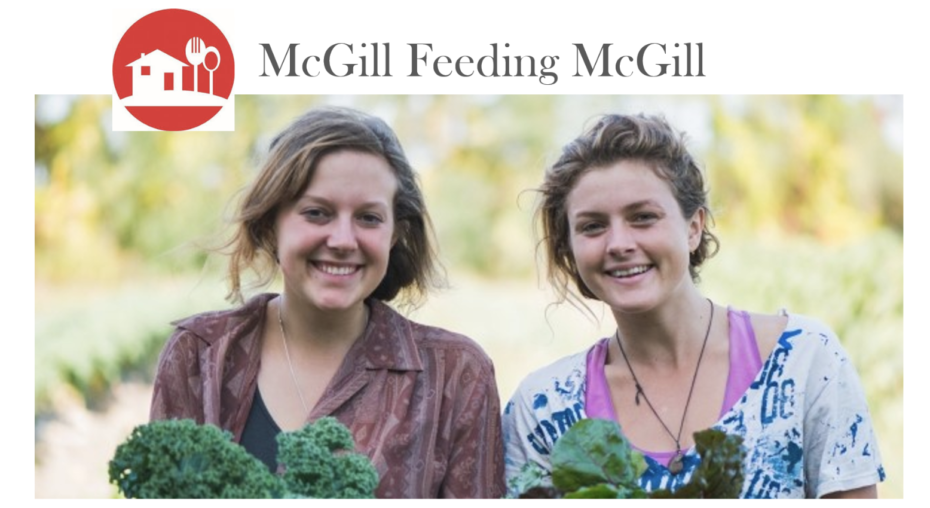
When the Sustainability Projects Fund (SPF) was established in 2009, it was an experiment.
The idea was simple: Promote a culture of sustainability across McGill by providing seed funding for grassroots sustainability projects that address everything from energy savings to social justice. (Each student would pay 50 cents per credit, which the administration would match dollar for dollar.) Members of the McGill community, including students, staff and faculty, would be welcome to apply for funding for their projects big and small.
Ten years, and $7 million in funding, later, it’s safe to say the experiment has been a huge success.
On October 10, the SPF will celebrate its 10th anniversary as the largest fund of its kind in Canada.
In the ten days leading up to October 10, the McGill Reporter is highlighting 10 of the more than 200 projects that have been supported by the SPF.
Today’s project: McGill Feeding McGill
One of the SPF’s original projects, McGill Feeding McGill (MFM) is also one of the Fund’s great success stories.
MFM began in 2009, in the form of a question: Could Macdonald Farm be used for more than teaching and research purposes and actually supply McGill’s Food and Dining Services with fresh, locally grown fruits and vegetables?
A decade later, the answer is a resounding ‘yes,’ with Mac Farm now providing some 26,000 kg of fresh produce and 3,000 kg of beef to McGill residence cafeterias and dining halls, as well as 420 dozen eggs per week.
Thirty minutes away from downtown campus, Mac Farm grows a wide variety of fruit and vegetables, including apples, Asian pears, plums, melons, kale, garlic, onions, cucumbers, tomatoes and bell peppers.
“McGill Feeding McGill is one of our most successful sustainability initiatives and the envy of many universities,” says Marisa Albanese, Director, Student Housing and Hospitality. “Our chefs are excited to use the many different products during the season and our students are the beneficiaries of the freshest and highest quality food being served to them during the school year.”
Produce that is transported from far-away places lose both nutrients and taste during the long haul in the back of a truck. By ‘eating locally’ diners benefit from food that is both nutritionally sound and pleasing to the palette. As well, the short drive from Mac – especially when compared to produce being trucked in from the US, Mexico and countries further south – represents a significant reduction in McGill’s carbon footprint.
In all, MFM applied for and received SPF funding for four projects. On top of seed funding to get MFM up and running in 2009, the SPF also supported the construction a hydroponic greenhouse and a high outdoor tunnel greenhouse space. Resources from the SPF also helped pay for thousands of student work hours, technician hours, administrative hours, reusable plastic food grade bins, seeds and irrigation supplies, land and machinery rental fees.
Now running out of Food and Dining Services, McGill Feeding McGill is still supplying students with healthy, produce grown in McGill’s backyard.
#spf10
